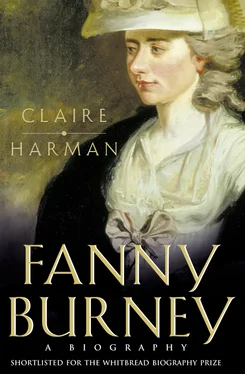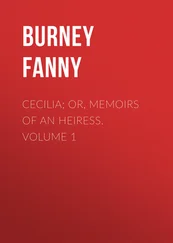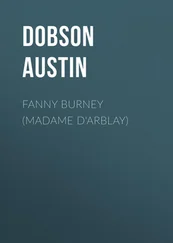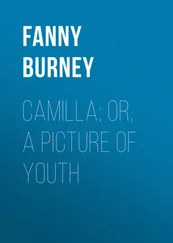Fanny’s attitude to food and eating immediately suggests some sort of disorder. References to food in her journals and works are infrequent, and never enthusiastic or appreciative. She knew, as we have seen from The Witlings , about young women starving themselves to get into smallsized clothes; she also knew about bingeing. In The Woman-Hater , Miss Wilmot’s unabashed relish for food is seen as a mark of her lack of feminine delicacy, and she characterises her old life of restraint and decorum as ‘sitting with my hands before me; and making courtsies; and never eating half as much as I like, – except in the Pantry!’ 37 Whether the Burney girls, singly or in gangs, raided the pantry in Poland Street or Queen Square is a matter for speculation, but in public Fanny was a very small eater. ‘I seldom Eat much supper’, she said to Twiss when he remarked on her pickiness. 38 The diaries show her at various times satisfied with one potato, 39 overpowered by the thought of a rasher 40 and alert to the grotesque aspects of ingestion, as a letter to Susan in March 1777 reveals:
Our method is as follows; We have certain substances, of various sorts, consisting chiefly of Beasts, Birds, & vegetables, which, being first Roasted, Boiled or Baked […] are put upon Dishes, either of Pewter, or Earthern ware, or China; – & then, being cut into small Divisions, every plate receives a part: after this, with the aid of a knife & fork, the Divisions are made still smaller; they are then (care being taken not to maim the mouth by the above offensive weapons) put between the Lips, where, by the aid of the Teeth, the Divisions are made yet more delicate, till, diminishing almost insensibly they form a general mash , or wad & are then swallowed. 41
This exercise in comic detachment is in part a send-up of the congenial dullness of life at Chesington Hall, intended to make Susan laugh, but it is revealing in other ways. While reducing the act of eating to its constituent parts, chewing over the very idea of eating, Fanny never touches on the sensual aspects – the smell, sight or taste of food. Food is simply matter to be made into smaller and smaller divisions ‘almost insensibly’, then swallowed in a ‘mash’ or ‘wad’. She writes about eating as if it were a merely mechanical process, pointless and therefore slightly disgusting.
Fanny’s small appetite (and her appetite for being small) was a form of self-neglect which had several other symptoms. Samuel Crisp complained about her unbecoming stoop and habit of sitting with her face short-sightedly close to the page when she was reading or writing. She was also criticised for mumbling, pitching her voice too low and being silent in company. Clearly, people felt she wasn’t making enough of an effort, wasn’t ‘doing herself justice’; and they were right.
Fanny Burney was in no hurry to get married – in fact the idea filled her with dread. ‘[H]ow short a time does it take to put an eternal end to a Woman’s liberty!’ she had exclaimed, watching a wedding party emerge from the church in Lynn. 42 Her father was her idol, and she had no intention of quitting him. ‘Every Virtue under the sun – is His!’ she wrote unequivocally. 43
Many men in the Burneys’ wide and constantly shifting circle of acquaintance were attracted to Fanny, and she made several conquests despite her reputation for prudery and refusal to play the coquette, an activity she found degrading to both sexes. Like the heroines of her novels, she was confident that virtue was at the very least its own reward. Her ‘quickness of parts’ and sense of humour were only revealed to those men she felt worthy to appreciate them, such as Alexander Seton; others were shown the ‘prude’ front. This was as much a matter of propriety and fairness as anything else. ‘I would not for the World be thought to trifle with any man’, she once wrote to Crisp, and her lifelong behaviour bore out the sincerity of the remark.
The first proposal of marriage Fanny received, in the summer of 1775, provoked a crisis. The hopeful suitor, a Mr Thomas Barlow, was a decent, honest twenty-four-year-old, good-looking and reasonably well-off, who became earnestly enamoured of Fanny after one cup of tea in the company of some friends of Grandmother Burney. Fanny’s aunts, sister and grandmother, in sudden, ominous collusion, strongly approved of the match, but Fanny was unmoved. She thought her polite rejection of Barlow marked the end of the story, but the opposition was marshalling its forces. Hetty had written to Crisp about the affair, and he wrote Fanny a long letter, blatantly working on what he imagined might be her worst fears. Did she, he asked, want to be
left in shallows, fast aground, & struggling in Vain for the remainder of your life to get on – doom’d to pass it in Obscurity & regret – look around You Fany [sic] – look at yr Aunts – Fanny Burney wont always be what she is now! […] Suppose You to lose yr Father – take in all Chances. Consider the situation of an unprotected, unprovided Woman. 44
Fanny replied to this harangue with courage. Pointing out how unwise Crisp was ‘so earnestly to espouse the Cause of a person you never saw’, she told him that she had resolved never to marry except ‘with my whole Heart’, be the consequences what they may. She was not so afraid of becoming an old maid that she could accept ‘marriage from prudence & Convenience’, and gently deflected Crisp’s fears for her future provision by saying, ‘Don’t be uneasy about my welfare, my dear Daddy, I dare say I shall do very well’. 45 Did she think that her writing, still secret to all but Susan, might one day earn her money? Or was this an expression of confidence in her father, in whose career she had such a close interest? ‘[S]o long as I live to be of some comfort (as I flatter myself I am) to my Father’, she grandly told Crisp, ‘I can have no motive to wish to sign myself other than his & your […] Frances Burney’.
Fanny’s confidence collapsed, though, when her father suddenly added his voice to those urging her to reconsider Barlow’s proposal. The suggestion that Charles Burney could live without her was a body-blow:
I was terrified to Death – I felt the utter impossibility of resisting not merely my Father’s persuasion but even his Advice . […] I wept like an Infant – Eat nothing – seemed as if already married – & passed the whole Day in more misery than, merely on my own account, I ever did before in my life[.] 46
The crisis resolved itself the next day in a tearful scene between father and daughter, during which Fanny declared that she wanted nothing but to live with him. ‘My life!’ the Doctor exclaimed, kissing her kindly, ‘I wish not to part with my Girls! – they are my greatest Comfort!’ Fanny left the room ‘as light, happy & thankful as if Escaped from Destruction’. 47
To Mrs Burney, the matter must have presented itself rather differently. The girls were not her greatest comfort, and seemed perversely determined not to marry well. Esther had made an impoverished love-match; in 1772 both Maria Allen and her seventeen-year-old brother Stephen shocked and offended their mother by runaway marriages – Maria with Martin Rishton, her former jilt, and Stephen with a girl called Susanna Sharpin. Now Fanny was declaring she would probably never marry, but wanted only to live with her father. With Fanny hunkering down after the Barlow episode as a possibly permanent fixture at home, relations between her and ‘Mama’ began to stiffen.
Progress with the History of Music was much slower than Dr Burney had anticipated, and although he was working at it obsessively and making as much use as possible of his daughters as secretaries and his new friend the cleric and scholar Thomas Twining as an adviser, it began to look as if he had taken on too much. He had other disappointments and difficulties at the same time, including the failure of his plans to found a school of music with the violinist Giardini and, a few weeks later, the publication of a raucous parody of his two books of travels ( The Present State of Music in Germany, the Netherlands and the United Provinces had been published the previous year), satirising the credulity and affectation of earnest fact-gatherers such as the Doctor in a succession of absurd and often quite amusing ‘musical’ encounters around England. Burney was deeply alarmed and offended by the pamphlet, and is believed to have tried to suppress it by buying up the entire stock, 48 a drastic measure which (if he took it) did not prevent the work going through four editions in the next two years. In the Memoirs Fanny made as light of the incident as she could, though she betrays her strong feelings in metaphors of ‘vipers’ and ‘venom’. According to her, the pamphlet ‘was never reprinted; and obtained but the laugh of a moment’, 49 but there was a great deal in the squib to touch her own feelings as nearly as it had the Doctor’s. If he, with his Oxford doctorate, could attract a lurid parody of his books about music, what treatment might not an uneducated female would-be novelist expect?
Читать дальше












